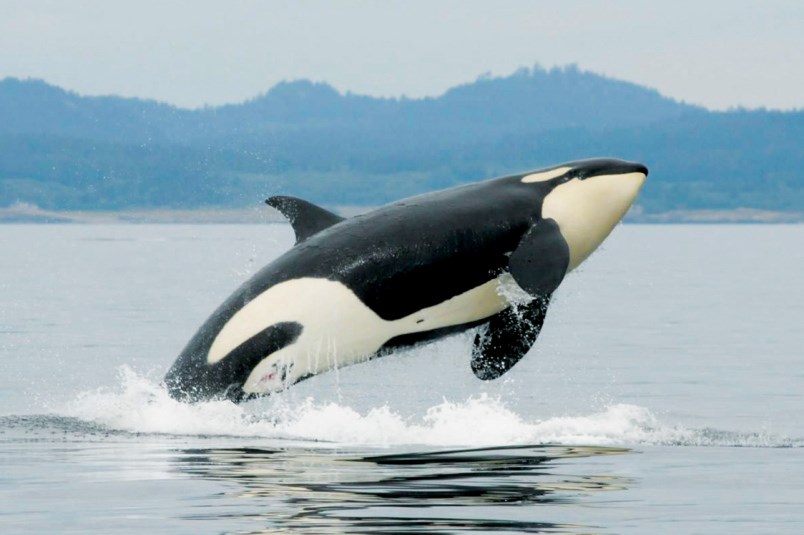The shíshálh Nation’s stalashen (killer whale) exhibit opens Monday at tems swiya Museum in Sechelt, following a grand opening Friday for Nation members and special guests. Both spectacular and sombre, the exhibit is a powerful tribute to the endangered southern resident orca population that has captivated the public and helped shape key government policy in recent years.
On display is the skeletal reconstruction of an 18-year-old male orca from the southern residents’ J-pod known as J34, or DoubleStuf, and renamed by shíshálh Nation elders kwentens ?e te sinkwu (Guardian of the Sea).
As Sunshine Coast residents will remember, J34 was recovered off the Trail Islands four days before Christmas 2016 and towed to the breakwater at Selma Park. Fisheries and Oceans Canada later revealed that he likely died from blunt force trauma to the head, indicating a collision with a vessel of some kind. Though he had been described as looking underfed the previous summer when he was spotted by the U.S.-based Center for Whale Research, post-mortem tests found his body to be in good condition. In the prime of his life, he was a perfect specimen.
The loss of J34 was especially saddening because he was one of seven orcas from the southern resident population that died in the same year. Since then the numbers have dropped further. Consisting of J, K and L pods, the community is now down to 74 confirmed living members, a 30-year low.
Their plight reached epic and heartbreaking proportions last summer when the entire world became transfixed by an orca mother’s “tour of grief,” as she pushed her dead calf for more than two weeks, covering 1,600 kilometres. That grieving mother was J35, who would have been the same age and in the same pod as J34.
The survival of the southern residents has, of course, played a central role in the national debate over the Trans Mountain pipeline expansion. This week the B.C. government reaffirmed its objection to the project on the basis that it could lead to a catastrophic oil spill in the Salish Sea. “We remain convinced this project is not in the best interests of British Columbians and it puts the environment and southern resident killer whales at risk,” the province said in a statement.
The importance of the southern resident orcas can’t be overstated and shíshálh deserves full marks for shining the spotlight on this vital “guardian of the sea.”



